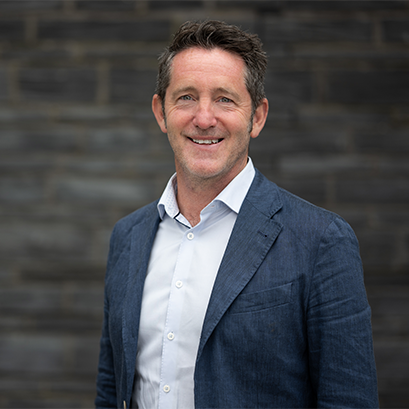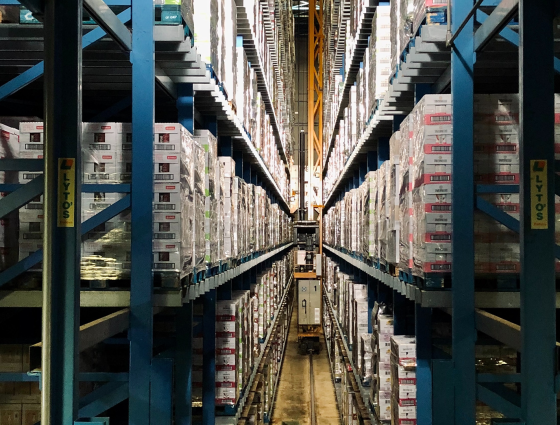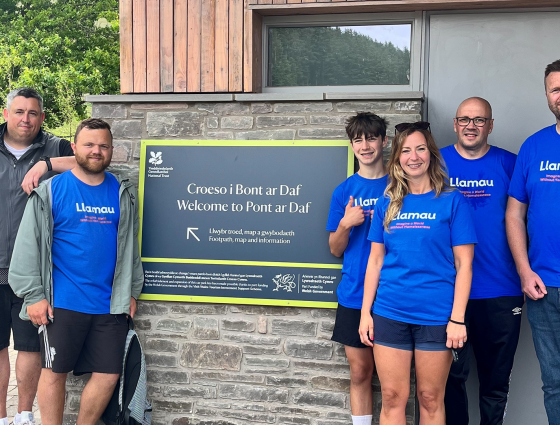In 2020, the Office for National Statistics published a *report setting out the challenges of producing an accurate measure of prevalence of modern slavery in the UK, given the hidden nature of the crime, the lack of definitive data sources, and identifying an accurate methodology to quantify the data.
But what we do know is that 10,613 potential victims of modern slavery were referred to the National Referral Mechanism (NRM) that year, the system through which potential victims of modern slavery and human trafficking are identified in the UK. And in 2022, the National Crime Agency recorded 536 potential victims of trafficking in Wales, an increase from 479 in 2021, with 58 of these referrals being made by Cardiff Council.
But what is modern slavery and how is Cardiff Council tackling the problem and helping other authorities do the same?

Modern Slavery exists where principles of property law are applied to people, allowing individuals to own, buy and sell other individuals. Victims are trafficked all over the world for little or no money – including to and within the UK. The term ‘Modern Slavery’ captures a whole range of types of exploitation, many of which occur together. These include but are not limited to:
- Sexual exploitation: this includes sexual abuse, forced prostitution and the abuse of children for the production of child abuse images/videos.
- Domestic servitude: this involves victims being forced to work in usually private households, performing domestic chores and childcare duties.
- Forced labour: this can happen in various industries, including construction, manufacturing, laying driveways, hospitality, food packaging, agriculture, maritime and beauty (nail bars).
- Criminal exploitation: This can be understood as the exploitation of a person to commit a crime, such as pick-pocketing, shoplifting, cannabis cultivation, drug trafficking and other similar activities that are subject to penalties and imply financial gain for the trafficker.
- Human trafficking: this requires that a person arranges or facilitates the travel of another person with a view to that person being exploited. The offence can be committed even where the victim consents to the travel. This reflects the fact that a victim may be deceived by the promise of a better life or job or may be a child who is influenced to travel by an adult.
- Other forms of exploitation: organ removal; forced begging; forced benefit fraud; forced marriage and illegal adoption.
Cardiff Council is working in partnership with Welsh Government, the wider public sector, suppliers, service providers, trades unions and others to address modern slavery challenges and drive collaborative action with a view to reducing risks and incidence of modern slavery.
The Council has published its fifth Modern Slavery Statement (Modern Slavery (cardiff.gov.uk) 2023/24) and is supporting Local Authorities within the Ardal collaboration to produce their first. It has previously offered its assistance to other LAs and shared its statement throughout Wales’s Local Authority network.
Training
Through collaboration with Welsh Government and other agencies, Cardiff Council has supported the re-establishment of a range of training courses through design and delivery, including Multi-Agency First Responder, Raising Awareness (including a Lunch & Learn package) and an updated ‘Train the Trainer’ course. Over 4,200 Council staff have now completed Modern Slavery training.
Training inputs from Barnardos to Cardiff Council’s Childrens Services have been facilitated, which has seen an exponential increase in NRM submissions.
Supply Chains
Cardiff Council spends around £600m each year (£1 Billion for Ardal as a whole), procuring a diverse range of goods, services and works, from over 8,000 suppliers and contractors. The Council undertakes due diligence when considering taking on new suppliers and it seeks to review existing suppliers on an annual basis through its contract management arrangements.
In terms of modern slavery, many of the high-risk sectors, including agriculture, leisure, hospitality, catering, cleaning, clothing, construction, and manufacturing, the Council delivers these services in-house, or utilises national frameworks and/or local suppliers.
Through this approach and continued diligence, the risk of modern slavery and human trafficking by Cardiff Council’s direct suppliers is considered low, and through the tendering process, the Council ensures that its direct suppliers are aware of its commitment to tackle modern slavery.
The Council has also produced a comprehensive package of tools to enable the assessment of risk in supply chains, including a new Self-Assessment Questionnaire which is intrinsic to the risk analysis process. It aims to pilot the SAQ to assist it in efforts to identify risks of exploitation within supply chains.
Social Value
Cardiff Council is providing support to suppliers who have made commitments under Social Value in respect of modern slavery. Assistance has included the provision of information for internal awareness raising campaigns and signposting to further resources. Plans are also in place to support and deliver on-site training to further raise awareness of relevant issues.
So, whilst the issue of modern slavery is complicated and difficult to fully comprehend, there is no doubt that by working with partners, suppliers, Welsh Government and other Local Authorities, Cardiff can play its part and help tackle an age-old problem, making a difference in communities throughout Cardiff and beyond.




